On books that became memories over Eid holidays

Back when I was in school, Eid holidays spanned from 15 days to a month, not one day of Eid sandwiched haphazardly between two more days of "holiday", which is what we get now. It was a good time to unwind and relax, wake up late-ish, and give some time to hobbies. It also meant there was plenty of time to not only start and finish a book for us bookworms, but also to take in and relish all the narrative arcs that they had to offer—unlike now, when we semi guilt-trip ourselves into hastily finishing a book, while waiting in traffic or sitting in the bathroom every morning.
I would wake up at 9:30 am and before anything else, continue reading the book at hand, half immersed in its pages, half dreading that I'm inching too close to its end. My mother never objected; being an avid reader herself, she understood. We would sit together—her with her copy of Debi, Gogol Omnibash or Kalbela and I with my Botol Bhoot, an issue of the Tintin comics, or whatever was recommended to me at the time—reading our own respective books, chatting in between, sharing ideas, Ma sipping on her cup of tea. The morning passed by.
Every year, before the holidays started, I would go to Boi Bichitra to buy a bunch of books. Baba, being the non-reader of the family, would sanction only four, lest I didn't finish them before classes started and therefore "ruin my studies". I had to be strategic here. Instead of one book, I could usually get away with buying two comics, or three if they were smaller. Throw in a tantrum or two, et voilà! I walked away having negotiated a bunch of comic books and a few good novels. And one of these spots was always taken up by a Harry Potter, sometimes a Percy Jackson, accompanied by a few Archies, Chacha Chowdhury or whichever book at the time had an alluring cover.
I realise this is a cliché, but there was rarely a kid who didn't impatiently wait for the new Harry Potter book to come out every year. If I remember correctly, they would pop up across traffic signals in Dhaka right before our Half-Yearly exams, around October, which meant (for me) that it was going to be the first book to be devoured when the winter Eid holidays would begin. Yes, I'm ancient enough to have enjoyed Eid in winter.
On one such Half-Blood Prince (2005) holiday, my mom found me curled up on our couch, wheezing and bawling over the death of Sirius Black. She had a near panic attack thinking someone had actually died. Mortified (I was old enough to not be that emotional over losing book characters), I wasn't going to explain to her that I was, in fact, weeping over my favourite fictional character dying. So, I let her believe a favourite teacher had passed away over the holidays– because, well, it kind of felt like that.
Another book that I kept going back to over the years was Antoine de Saint-Exupéry's The Little Prince (1943). The first time I read that book was in Grade-6, and did that little piece of novella leave an impression! I ask this to anyone who has read that book– how in God's name is this a children's book? I remember reading it over a night and sobbing like an idiot. It was around that time when I first started to feel the inklings of my long-standing depression. At that age, reading about how *SPOILER ALERT* the little prince had to leave his friend and go away, even though he was scared. I couldn't fully comprehend the concept of death, but in so many ways, it made me come to terms with my own struggles with friendship and fitting in, with loss and loneliness. Even at that age, I understood the layers of metaphors and the wisdom beneath an enchanting story about a little boy and his unusual run-in with a boa constrictor.
On cold winter nights, sometimes, I would dare upon the adventures of the infamous Taranath Tantrik as I was growing up. I was maybe 13 years old when I first found the blood red cover of the book in my uncle's Banglabazar book shop/publishing house. There, the tantrik's face was illustrated on its front, with seemingly a parrot perched on a skull on the back cover. Fascinated by the graphics work, I asked my uncle if he could get me a copy. What I didn't predict then was, with that tiny book with its tales about the tantrik's adventures with black magic, demons, ritualistic sacrifices, and occultist practices—I had planted the seed of my eternal obsession with the macabre, eventually paving the way for the works of Poe, books like Wuthering Heights, Desire Under the Elms, Frankenstein, and other gritty, dark, gothic themed stories.
I wasn't too young when Sharfin Islam, known lovingly on bookstagram as @atinyreader, demanded that I read The Night Circus. I was in my third year of undergrad, I believe. I'm not as voracious a reader as her, but when she recommends a work of magic realism to me, I know better than to take it with a grain of salt, because I always—without fail—end up falling in love. I was sucked into this wonderful, vivid creation of writer Erin Morgenstern's rich imagination. It formed the basis of my undergraduate thesis paper, for which I had to reread it countless times, and even so, I still don't get tired of going back to it whenever I get stuck in a reading slump. The Night Circus has sincerely become one of my most favourite comfort reads.
Looking back, I realise that I remember my life through a series of books that I read at particular times. Memories created in my childhood are associated with these books, one on top of another to build a wobbly but somewhat standing bookcase that is my life. I remember Ma through her books, the little of her thoughts and ideas that she could share with the young me then; I recall Baba's absolute disapproval of Taranath Tantrik because he thought I was finally treading onto the "other side". I have stacked my life the way I stacked my bookshelf: not colour-coded or in ascending order but in a way that perhaps only I can make sense of. There is a certain joy to be had in that secret.
Maisha Syeda is a writer, painter, and a graduate of English Literature and Writing. She is the sub editor of Daily Star Books.
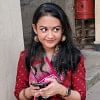
 For all latest news, follow The Daily Star's Google News channel.
For all latest news, follow The Daily Star's Google News channel. 
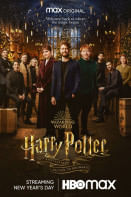
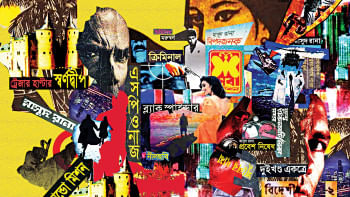
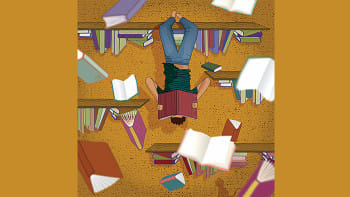




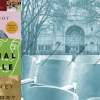

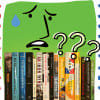
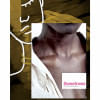




Comments